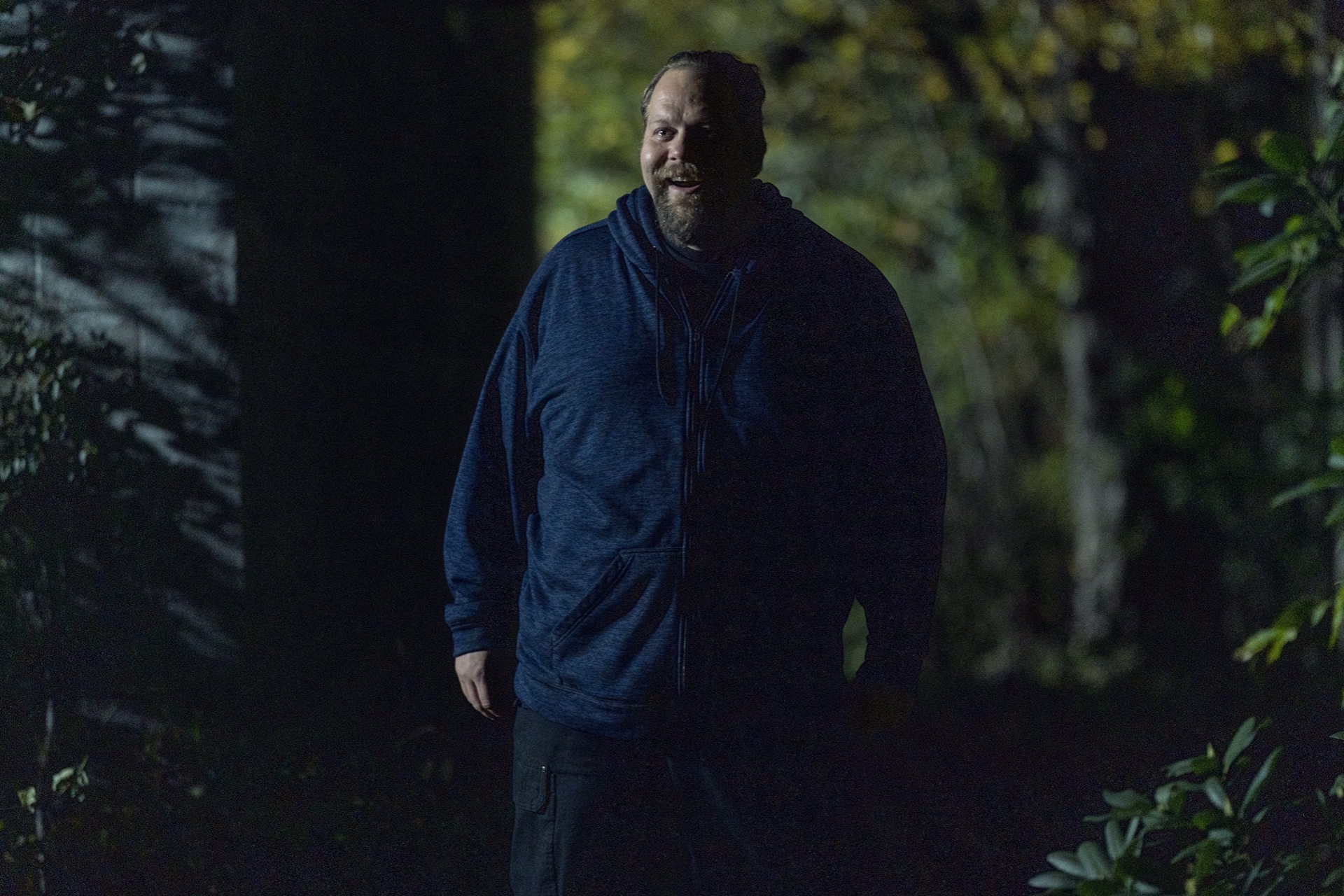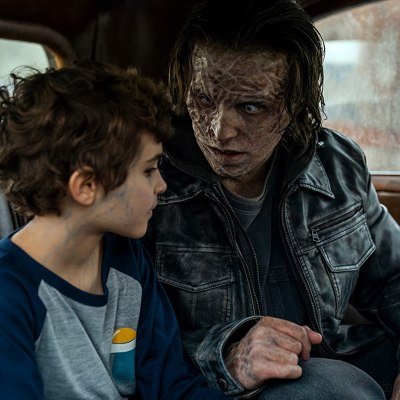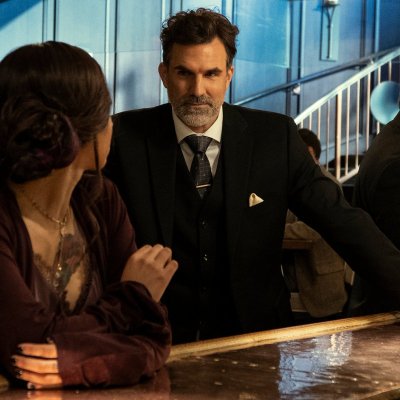This NOS4A2 review contains spoilers.
NOS4A2 Season 2 Episode 8
One of the strongest relationships in NOS4A2 has been the father-daughter connection between Chris and Vic McQueen. They fought, certainly, and Chris undoubtedly made a lot of mistakes, but there was no mistaking the bond of love that they shared, and the closeness that they once had. Vic, as seen in the opening moments of “Chris McQueen,” always seemed to be her father’s shadow, chasing after him even when he ran away. Eventually, through the twin forces of time and her own motherhood, she stopped. He kept pushing until she gave up, allowing him to run from his own mistakes in much the same way his father once ran from him. In the end, Larry McQueen died, leaving behind a son who didn’t know him. In the end, Chris McQueen dies, but perhaps leaves behind a daughter who understands him just a little bit better than he understood his own father.
Given that the episode opens with a McQueen funeral, it’s ominous. Chris, delivering his father’s eulogy, digs into their history, their traumas together, and the mistakes his father made that he went on to repeat for a variety of reasons, mostly related to death and distance. In a lot of ways, by trying to be different from his father, Chris made the same sorts of mistakes, right down to running from Vic when she needed him. Vic, in turn, is making those same mistakes with Wayne, and the pair of them dig deeply into that trauma courtesy of Megan Mostyn-Brown’s script. It’s rife with family issues, particularly those usually brushed off as daddy issues, and both Ebon Moss-Bachrach and Ashleigh Cummings get to plumb serious emotional depths with their scenes together.
Perhaps the scenes have more weight to me because I’ve lost my own father, and I remember having a very similar conversation with him when I was about the age Vic is in this episode. Perhaps I’m extra sensitive to my potential failings as a parent because I have a toddler daughter. Either way, something about the earnestness and awkwardness of the exchanges between Chris and Vic resonated with me, and Megan Mostyn-Brown does some wonderful work in those scenes, particularly when Vic tells Chris that she needs to forgive him in the hopes that one day Wayne will be able to forgive her. That moment, and the awkwardness between the two, landed hard, as did Linda’s (Virginia Kull) comment that she was trying to protect her only daughter while Vic was more concerned with protecting her own son.
Both of them, despite not having the best of relationship, understand that primal instinct to protect their offspring. That was one of the reasons Chris initially ran from his family, and why Larry distanced himself from young Chris at that age. Both of them had problems, and Vic has problems, and the cycle continues with only small differences. Chris, at least, waited until Vic was practically an adult to leave, and eventually got sober. Vic, eventually, gets sober, albeit with the added danger of Charlie Manx looming over her shoulder, but also with the knowledge that she’s trying not to be like her father, who ran out without saying a word, who was trying not to be like his father, who ran out and never tried to have a relationship with his son after that. NOS4A2 persists in showing the damage of generational trauma, and the difficulty that comes with trying to work through and get past that (even without fighting a quasi-immortal psychic vampire).
Read more
The focus of Tricia Brock’s direction is more about handling the actors than doing anything spectacular with the visuals, though the stand-off between Vic on her Triumph and Charlie in his Wraith is well done. The timing of the car driving through the explosions is especially enjoyable, as the car is slowed but not stopped by Chris’s best efforts. (In much the same way, Chris was able to slow, but not stop, the effects of his alcoholism on his daughter.) Cummings and Moss-Bachrach deserve praise for how they handle their scenes together, as does Ólafur Darri Ólafsson. Bing’s turn from indomitable gas-masked killer to pathetic man-child fully aware that he was used and manipulated by someone is well handled, as it establishes that, at his core, Bing is nothing if not a sad figure trying desperately to connect with people despite his shortcomings and stunted emotional state. Bing wanted a friend; unfortunately, he fell under the sway of a friend who brought out the evil in him.
Charlie Manx tends to do that. Bing was different from the person who worked at Vic’s school, reading comic books and watching cartoons. Vic is different from the girl who got into RISD and was trying to rise above her humble beginnings cleaning the toilets of rich people. Millie, as seen last episode, was a sweet, normal girl who didn’t play games like “let’s stab the little one.” She had hopes and dreams, a desire to grow up and be something other than her father’s emotionally-arrested perma-child. It’s as if Manx’s selfishness only brings out the damage in the people around them, forcing their worst instincts to become the dominant ones. He’s selfish and cruel, and he makes everyone else selfish and cruel, too.
No matter what her gifts, Vic McQueen was going to have a hard time making her way in life. She was talented and clever, worked hard, kept her nose clean, and avoided the sex and drugs and booze that got her own parents trapped in Haverhill—until she ran into Charlie Manx and her life spiraled out of control. Even after besting Manx, Vic has a boyfriend, a business that seems relatively successful, and a son who seems happy and well-adjusted. She’s made some peace with her troubled past, albeit an uneasy peace.
Then Charlie Manx comes back and what progress Vic has made gets cast aside in a flurry of trauma and death, damaging everyone she cares about. The metaphor, the inescapable sins of the past, is heavy, but effective. Trauma might be healed from, but scars tend to remain despite all effort. At least, when it mattered the most, Chris McQueen was there for his daughter. Perhaps, if she survives, she’ll be able to find some comfort in that.


